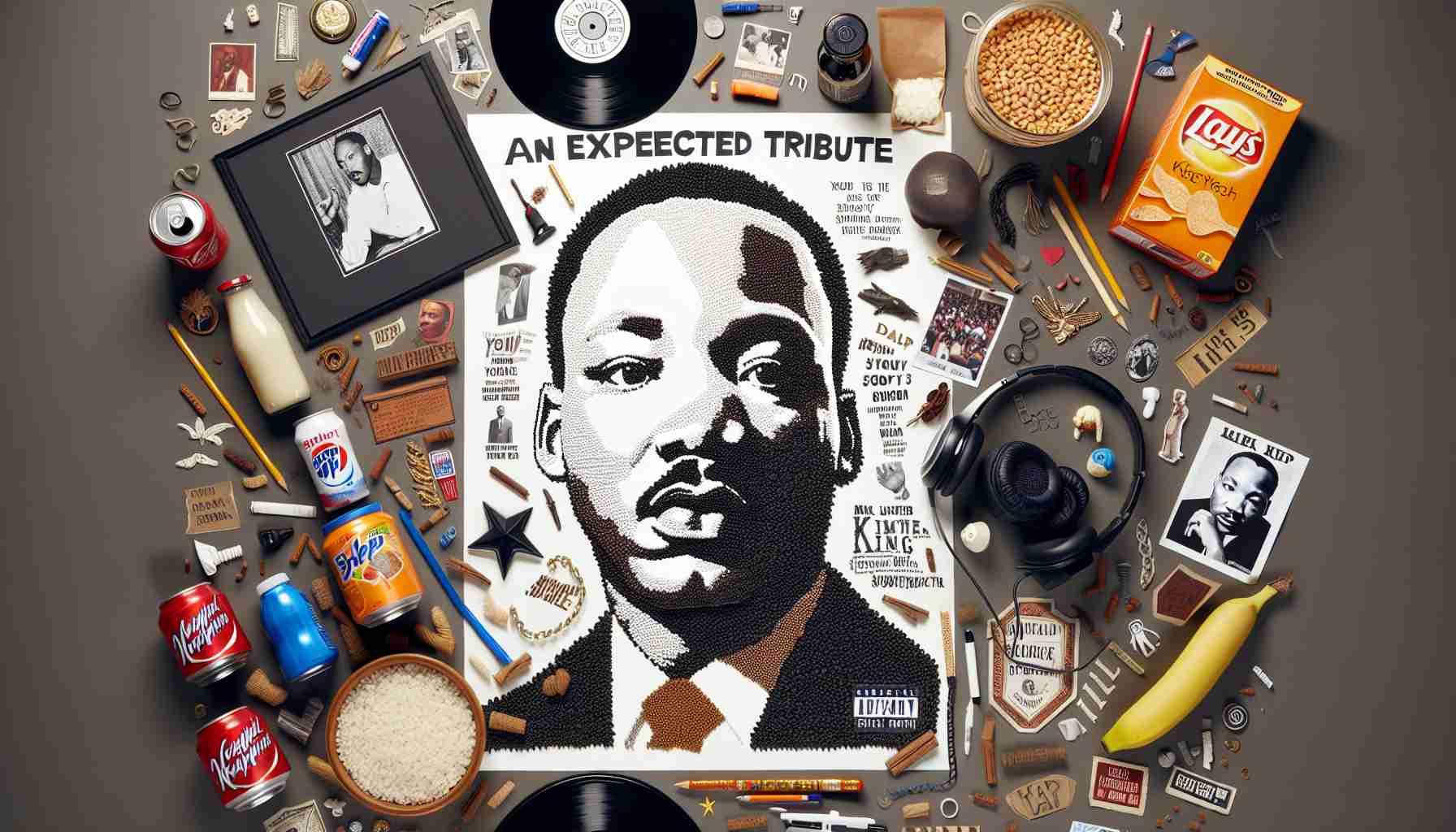In a bold move that turned heads, Sexyy Red utilized 人工知能 to commemorate Martin Luther King Jr. Day. On January 21, the 26-year-old rapper took to her social media platform to share intriguing images featuring the esteemed civil rights icon, inviting both intrigue and criticism online.
One of the AI生成の画像 displayed her standing side-by-side with King Jr. in what seemed to be a nightclub setting, creating a surreal and intimate moment. Another image saw her digitally placed in the iconic March on Washington for Jobs & Freedom from August 1963, an event profoundly significant in American history.
The posts were met with a range of reactions, as many users flooded the comment section with a mix of laughter and concern. Some even voiced their disapproval, emphasizing the importance of respecting the legacy of Martin Luther King Jr. One comment reminded her she couldn’t equate herself to Coretta Scott King, while others playfully suggested they appreciated her activism.
Encouragingly, amidst the backlash, some supporters celebrated her dedication to social justice, referencing her connection to historic movements like the Stonewall Riots and the legacy of Rosa Parks. Despite stepping into controversial territory, Sexyy Red, who has shown her support for former Vice President Kamala Harris in the upcoming presidential race, has yet to comment on Donald Trump’s inauguration that coincided with MLK Day.
AIと活動の文化的交差点
The intersection of 人工知能 and cultural expression is undeniably reshaping the landscape of societal discourse. When artists like Sexyy Red leverage AI to intertwine their narratives with prominent historical figures, it raises pertinent questions about the authenticity of activism in a digital age. The implications extend far beyond entertainment; they delve into the core of how 社会が歴史的遺産を認識し、交流するか.
As more artists harness the power of AI for creative expression, 文化的盗用 becomes a critical issue. While innovation in art can foster greater awareness, it also runs the risk of trivializing profound movements and figures if not approached with sensitivity. The backlash against Sexyy Red’s AI imagery demonstrates a societal concern that the 記憶の礼儀 can sometimes be overshadowed by spectacle.
Furthermore, this trend prompts an examination of the 世界経済 as technology continues to democratize content creation. The rise of AI tools has made historically rooted art more accessible, leading to a new genre of digital artistic expression burgeoning from grassroots movements across cultures. This accessibility cultivates a diverse range of narratives that could influence future trends in activism, allowing marginalized voices to emerge creatively.
But with these changes come 環境問題 as well. The energy consumption associated with AI technologies is significant, raising concerns about sustainability. The digital art movement must navigate this delicate balance, ensuring that their creative passions do not contribute to further ecological detriment.
In an era defined by 技術の進歩, the ability to blend historical elements with contemporary artistry opens doors to innovative dialogues around social justice—though it remains vital to tread thoughtfully within these digital realms.
Sexyy Redがマーティン・ルーサー・キング・ジュニアへのAIトリビュートで物議を醸す
アートにおけるAIの台頭と論争
In recent years, artificial intelligence (AI) has emerged as a groundbreaking tool in various creative fields, including art and music. The advent of AI-generated content has invited numerous discussions about ethics, authenticity, and cultural representation. Notably, the rapper Sexyy Red’s recent social media posts featuring AI-generated images of Martin Luther King Jr. underscore the dual-edged nature of using AI in artistic expressions.
AIと文化的反映:利点と欠点
利点:
1. 革新的な手段: AI can create art that pushes the boundaries of creativity, offering new ways to interpret and reflect on important societal issues.
2. アクセスのしやすさ: AI tools are increasingly accessible, allowing artists from diverse backgrounds to experiment without the need for extensive resources or technical skills.
3. 社会的コメント: AI art can provoke discussions on significant social justice topics, fueling engagement among fans and the wider community.
欠点:
1. 文化的感受性: AI-generated content can risk trivializing historical figures and important movements, as seen in the response to Sexyy Red’s images.
2. 真実性の懸念: The use of AI raises questions about the authenticity and ownership of artistic work, especially concerning historically significant icons.
3. 公衆の反発: High-profile cases, like this one, illustrate how communities may react negatively if they feel that their histories and legacies are being misrepresented or disrespected.
公共の反応:反応のスペクトラム
Sexyy Red’s posts elicited a varied range of responses from the public. While some users found humor and appreciated the modern twist on a civil rights icon’s legacy, others highlighted the importance of respecting figures like MLK. The comments reflected a deeper engagement with the ideas of cultural representation and the responsibility artists hold when addressing significant historical narratives.
セレブリティの社会正義における役割
Amidst criticism, it’s worth noting that many celebrities use their platforms to advocate for social justice. Sexyy Red’s historical references, such as the March on Washington and figures like Rosa Parks, show a connection to movements advocating for equality. It raises questions about how modern artists can leverage their influence while remaining respectful of the legacies they reference.
未来展望:AIと芸術的革新
The integration of AI in artistic endeavors raises intriguing possibilities for the future.
注目すべきトレンド:
– 音楽と視覚芸術におけるAIの使用増加: More artists may experiment with AI to create content that resonates with contemporary social issues.
– 共同アートプロジェクト: Expect to see collaborations between AI developers and artists to create meaningful works that address cultural topics sensitively.
– 倫理に関する議論の強化: The blend of AI and art will likely lead to ongoing debates on ethics and representation, particularly in how public figures engage with history.
結論
Sexyy Red’s AI-generated tribute to Martin Luther King Jr. serves as a case study for the intersection of technology, art, and cultural commentary. As AI continues to shape the creative landscape, artists must navigate the balance between innovation and respect for historical figures and movements. Engaging with these themes will be crucial for artists, fans, and critics alike, ensuring that creativity remains a powerful tool for social discourse and understanding.
For more insights into the intersection of technology, art, and culture, visit Art News.
